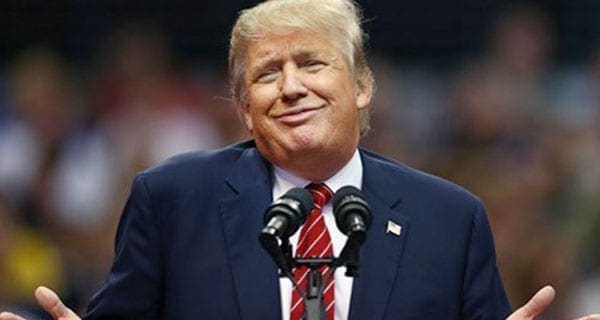 When something unfortunate happens in the world, have you noticed that many people attempt to tie it back to Donald Trump? This includes wars, racism, famine, natural disasters – and even all the rain some parts of the country have seen this spring!
When something unfortunate happens in the world, have you noticed that many people attempt to tie it back to Donald Trump? This includes wars, racism, famine, natural disasters – and even all the rain some parts of the country have seen this spring!
For fun, let’s see if a line can be drawn to the populism of the controversial U.S. president and equally controversial Ontario MPP Jack MacLaren.
A civil engineer and former Ontario Landowners Association president, MacLaren was first elected under the Progressive Conservative banner in 2011. The folksy, plain-talking libertarian politician has been embroiled in controversy ever since.
His November 2014 private member’s bill to repeal environmental protections to Niagara Escarpment was introduced to help remove “creeping socialism that has been slowly taking away our property rights for decades,” and restore “our British Christian cultural heritage of freedom, democracy, common-law and private property rights.” It was soundly defeated by a margin of 40-1. While most PC MPPs avoided the vote, one notable caucus member showed up to vote against it: then-party leader Tim Hudak.
MacLaren got into hot water in April 2016 during a cancer fundraising dinner in Carp, Ont. He invited Liberal MP Karen McCrimmon onto the stage, and told a “vulgar” joke about the politician and her husband. PC Leader Patrick Brown was displeased, noting his party has “zero tolerance for misogynistic comments.” MacLaren, an early supporter of Brown’s leadership bid, finally issued an apology.
He was demoted from his post as the party’s eastern Ontario representative days later when it was discovered his website contained false testimonials and photos posted without permission. Mounting pressure led Brown to reassign MacLaren’s caucus responsibilities and he made the MPP take sensitivity training.
The final straw came on May 28. The media got a hold of a 2012 video in which MacLaren criticized French language rights and appeared to suggest the PCs would change things once they got into power.
MacLaren claims the PCs knew about this video years ago. He told the Toronto Star’s Robert Benzie on May 29 that the PCs “got wind, I guess” of his decision to join the Trillium Party of Ontario, with whom he’d been speaking “for several weeks,” and expelled him first.
Brown said he had no knowledge of the video. He told the Canadian Press on May 30 that there were “rumours for about two years that MacLaren was going to form his own party,” but he was unaware of the small political outfit being in the mix.
The new Trillium Party MPP quickly launched himself into another controversy during a tense May 29 interview with CFRA radio host Evan Solomon. When the experienced journalist asked some very basic questions about his dismissal, MacLaren went ballistic and said there’s “no value in you or what you are saying!” along with “What are you wasting people’s time for?”
Now, what about MacLaren and Trump?
The historical roots of Canadian populism go back much further than Trump’s modern brand of populism and economic nationalism. Some diverse examples include Jack Horner (the Alberta MP who switched from PC to Liberal in 1977), the Reform Party and several MPs like Myron Thompson and Darrel Stinson, and Ontario PC MPPs like Bill Murdoch and Randy Hillier.
Yet, it’s probably true that MacLaren’s populist roar of political discontent has been emboldened by Trump’s presidency. It provides him extra leverage in combatting his former party and leader, political opponents, and the media. He can claim he’s working for the people and can decry a corrupt system that’s biased against his views – and his constituents’ views.
History has shown that Canadian politicians who cross the floor and/or join smaller parties struggle mightily to get re-elected. It’s not impossible, however.
So, while the Ontario PCs are pleased to be rid of MacLaren, it’s possible Ontario won’t soon be rid of this Canadian populist with Trump-like features.
Michael Taube, a Troy Media syndicated columnist and Washington Times contributor, was a speechwriter for former prime minister Stephen Harper. He holds a master’s degree in comparative politics from the London School of Economics.
The views, opinions and positions expressed by columnists and contributors are the author’s alone. They do not inherently or expressly reflect the views, opinions and/or positions of our publication.

